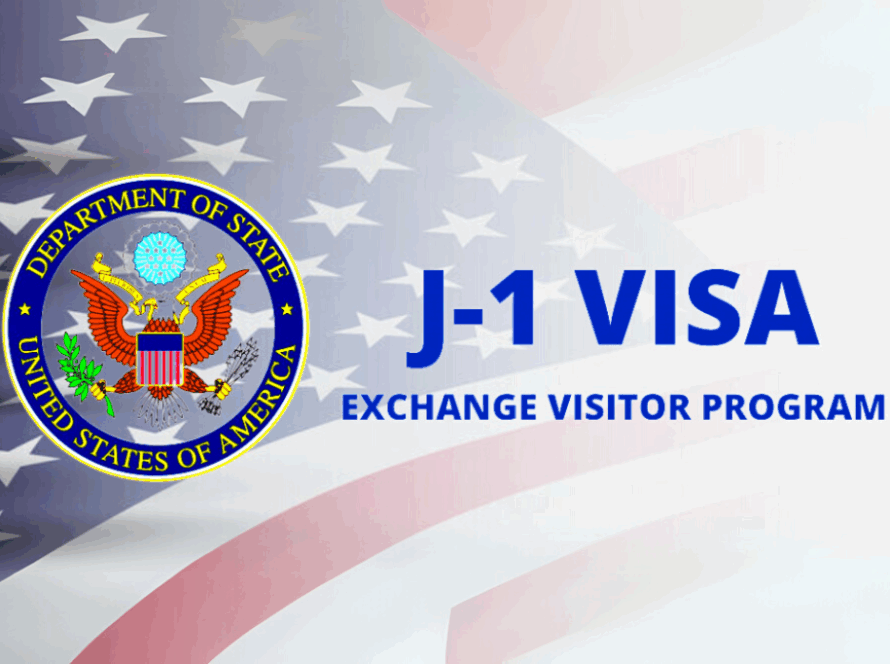Introduction:
The EB1 visa is one of the most prestigious employment-based immigration options available, providing a direct pathway to obtaining a U.S. green card for individuals who possess extraordinary abilities in specific fields. Whether you’re a world-renowned researcher, an Olympic athlete, an award-winning artist, or a highly accomplished business professional, the EB1 visa allows you to bypass the standard labor certification process and self-petition for permanent residency in the United States.
This visa is designed to attract individuals who have achieved national or international recognition in their field and are coming to the U.S. to continue their work, contribute to their field, and benefit society as a whole. The EB1 category includes three subcategories: EB1-A for extraordinary ability, EB1-B for outstanding professors and researchers, and EB1-C for multinational managers and executives.
In this comprehensive guide, we will explore the EB1 visa’s eligibility requirements, the application process, the advantages of applying for this visa, and how to determine if the EB1 visa is the right pathway for you.
What is the EB1 Visa?
The EB1 visa is a priority worker category in the employment-based immigration system that offers a fast track to a green card for individuals with extraordinary abilities in certain fields. Unlike other employment-based green card categories, the EB1 visa has the benefit of being exempt from the labor certification process, which typically requires employers to demonstrate that no qualified U.S. workers are available for the job.
The EB1 visa is divided into three subcategories:
- EB1-A: Individuals of extraordinary ability in the sciences, arts, education, business, or athletics.
- EB1-B: Outstanding professors and researchers who are internationally recognized in their field.
- EB1-C: Multinational executives and managers who have been employed by an international company.
Applicants in the EB1-A category are eligible for self-petition, meaning they do not require a job offer or employer sponsorship. This is one of the major advantages of the EB1 visa, as it gives the applicant greater control over the process.
EB1-A Visa: Eligibility for Extraordinary Ability
The EB1-A visa is for individuals who can demonstrate extraordinary ability in their field. This category is reserved for the most accomplished individuals—those who have reached the top of their profession. To qualify, applicants must meet certain criteria to prove their exceptional accomplishments.
Eligibility Requirements for EB1-A: To qualify for the EB1-A visa, applicants must show evidence of their extraordinary ability in their field. USCIS requires proof of sustained national or international acclaim. Here are the key requirements:
1. Demonstrated Extraordinary Ability: Applicants must prove that they have extraordinary ability in one of the following fields:
- Sciences
- Arts
- Education
- Business
- Athletics
2. Evidence of Accomplishments: While applicants do not need to have a specific job offer, they must provide evidence of their extraordinary ability through documentation. This includes at least three of the following:
- Major awards: such as a Nobel Prize, Olympic medal, or other significant international recognition in the applicant’s field.
- Published articles about the applicant’s work in professional journals, media, or other prominent sources.
- Membership in professional associations that require outstanding achievements for membership.
- Original contributions that have been recognized as significant in the field.
- Authorship of scholarly articles or books in the field.
- Leading roles in organizations or events that demonstrate a prominent position.
- High salary or remuneration compared to others in the field.
3. Evidence of the Applicant’s Continued Work in the U.S.: Applicants must also show that they intend to continue working in their area of extraordinary ability in the U.S. The applicant must demonstrate that they will contribute to the U.S. economy, cultural life, or social welfare.
EB1-B Visa: Outstanding Professors and Researchers
The EB1-B visa is designed for outstanding professors and researchers who are internationally recognized for their expertise in a particular academic field. Applicants must be able to demonstrate that they have a significant contribution to their field through research, publications, and peer recognition.
Eligibility Requirements for EB1-B: To qualify for the EB1-B visa, applicants must meet the following criteria:
1. International Recognition: Applicants must be recognized internationally as outstanding in their academic field. This can be demonstrated through peer-reviewed publications, citations, and invitations to present research at conferences.
2. At Least Three Years of Experience: Applicants must have at least three years of experience in teaching or research in their field. They should be involved in an academic or research role at the time of applying.
3. Evidence of Outstanding Achievements: Applicants must provide at least two of the following:
- International awards or honors for academic achievement.
- Publications or citations of their work in prominent academic journals.
- Letters of recommendation from recognized experts in their field.
4. Employment in a Qualifying Position: Applicants must have a job offer from a U.S. employer to work in a research or teaching role. Unlike the EB1-A, the EB1-B requires a sponsoring employer.
EB1-C Visa: Multinational Executives and Managers
The EB1-C visa is for multinational executives or managers who have worked for a qualifying organization outside the U.S. and are being transferred to a U.S. office, subsidiary, or affiliate. This category is designed for individuals who have held a managerial or executive role within a multinational organization.
Eligibility Requirements for EB1-C: To qualify for the EB1-C visa, applicants must meet the following criteria:
- Employment in a managerial or executive position: The applicant must have been employed for at least one year in the three years preceding the petition in a managerial or executive role at a foreign affiliate, subsidiary, or branch of a U.S. company.
- Offer of employment in the U.S.: The applicant must be offered a position as a manager or executive in the U.S. subsidiary, affiliate, or branch of the foreign company.
- The company must be operating in both the U.S. and abroad, with at least one year of continuous operation in the U.S.
EB1 Visa Application Process
The EB1 visa process involves several steps. Here is a breakdown of the application procedure:
1. Prepare Documentation: Before filing, gather all necessary documents to demonstrate your eligibility. This includes evidence of extraordinary ability (for EB1-A), outstanding achievements (for EB1-B), or proof of managerial or executive experience (for EB1-C).
2. File Form I-140 (Immigrant Petition for Alien Worker): The primary form for the EB1 visa application is Form I-140, which must be submitted to U.S. Citizenship and Immigration Services (USCIS). This petition is used to prove your eligibility and request that you be granted a green card based on extraordinary ability or professional achievements.
3. Submit Supporting Evidence: Along with Form I-140, you must submit the required evidence, including academic records, letters of recommendation, publications, or awards, depending on the specific EB1 subcategory you are applying for.
4. Wait for Approval: Once your Form I-140 is submitted, USCIS will review the petition and supporting evidence. Processing times vary, but it typically takes around 6-12 months for USCIS to issue a decision. In some cases, applicants may be eligible for premium processing to expedite the process.
5. Adjustment of Status or Consular Processing: If you are already in the U.S., you can file Form I-485 to adjust your status to a permanent resident once your I-140 is approved. If you are outside the U.S., you will go through consular processing at a U.S. embassy or consulate.
Benefits of the EB1 Visa
The EB1 visa offers numerous advantages for qualified applicants:
1. Fast-Track Green Card Process: The EB1 visa is part of the priority worker category, which typically leads to faster processing times than other employment-based green card options.
2. No Labor Certification Required: Applicants in the EB1-A and EB1-B categories do not need to go through the labor certification process, which is typically required for other employment-based green card categories.
3. Self-Petition Option: EB1-A applicants can self-petition, meaning they do not need employer sponsorship. This provides more flexibility and control over the application process.
4. Pathway to U.S. Citizenship: Once approved, the EB1 visa provides a clear path to U.S. permanent residency and, eventually, U.S. citizenship.
5. Family Benefits: Your spouse and children under 21 can be included in your petition and apply for green cards as derivatives. They can live, work, and study in the U.S. while you establish your new life.
Challenges of the EB1 Visa
While the EB1 visa offers many advantages, there are also some challenges to consider:
- The extraordinary ability standard is very high and may require significant evidence of international recognition, making it a competitive process.
- The application process can be lengthy and requires substantial documentation, which may be difficult for some applicants to compile.
Conclusion
The EB1 visa is a remarkable opportunity for individuals who possess extraordinary abilities in their field. Whether you’re a scientist, athlete, researcher, or business executive, the EB1 visa offers a clear and direct path to a green card and permanent residency in the United States.
While the process can be rigorous, the EB1 visa provides unique advantages, including a faster timeline, no labor certification, and the ability to self-petition in certain categories.
If you believe you qualify for the EB1 visa, working with an experienced immigration attorney can help ensure your application is successful, and you can achieve your American Dream.
FAQs
- What is the difference between EB1-A and EB1-B?
EB1-A is for individuals with extraordinary abilities who can self-petition, while EB1-B is for outstanding professors and researchers who require employer sponsorship. - Can I apply for the EB1 visa if I have a job offer in the U.S.?
Yes, if you’re applying under the EB1-B or EB1-C categories, a job offer is required. For EB1-A, you can self-petition without a job offer. - How long does it take to get an EB1 visa?
Processing times vary, but it typically takes 6-12 months for USCIS to process your I-140 petition. - What is the difference between EB1 and EB2 visas?
The EB1 visa is for individuals with extraordinary abilities or accomplishments, while the EB2 visa typically requires advanced degrees or exceptional ability in the field. - Can my family join me if I get an EB1 visa?
Yes, your spouse and children under 21 can join you as derivative beneficiaries when you apply for the EB1 visa.


